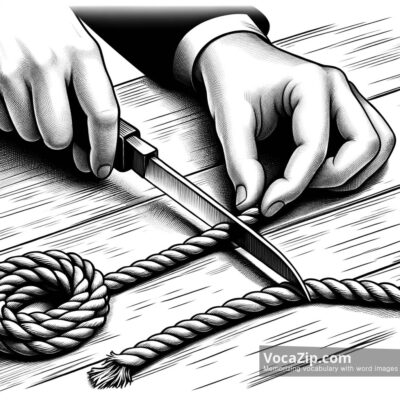abridge meaning
abridge :
to shorten, to make brief
verb
▪ They abridged the book for children.
▪ They made the book shorter for kids.
▪ The speech was abridged to fit the time limit.
▪ The speech was made shorter to fit the time.
paraphrasing
▪ shorten – to make less long
▪ condense – to make more compact
▪ trim – to cut down
▪ summarize – to give a short version

Pronunciation
abridge [əˈbrɪdʒ]
The stress is on 'bridge' and sounds like 'uh-brij'.
Common phrases and grammar about abridge
abridge - Common meaning
verb
to shorten, to make brief
Part of Speech Changes for "abridge"
▪ abridgment (noun) – a shortened version
▪ abridged (adjective) – shortened
Common Expressions with "abridge"
▪ abridge a book – to make a book shorter
▪ abridge a speech – to make a speech shorter
▪ abridge content – to shorten content
▪ abridge a story – to make a story shorter
Important examples of abridge in TOEIC
Vocabulary examples from the TOEIC test
In TOEIC vocabulary questions, abridge often means to shorten texts or documents.
Example of a confusing word: bridge (to connect)
Grammar examples from the TOEIC test
Abridge is used as a transitive verb, meaning it often appears with an object in grammar questions.
abridge
Idioms and fixed expressions in TOEIC
abridged version
'shortened version', used when referring to texts or speeches.
bridge the gap
means 'to make the difference smaller', used in a broader sense.
Differences between similar words and abridge
abridge
,
shorten
differences
Abridge is used for texts or speeches, while shorten can be used for any length.
Words with the same origin as abridge
The origin of abridge
abridge comes from the Latin 'abbreviare', which first meant to shorten or cut down.
Word structure
It has the prefix a (to), root bridge (shorten), and means 'to shorten'.
Words with the same origin
The word's root is unclear or difficult to confirm.






